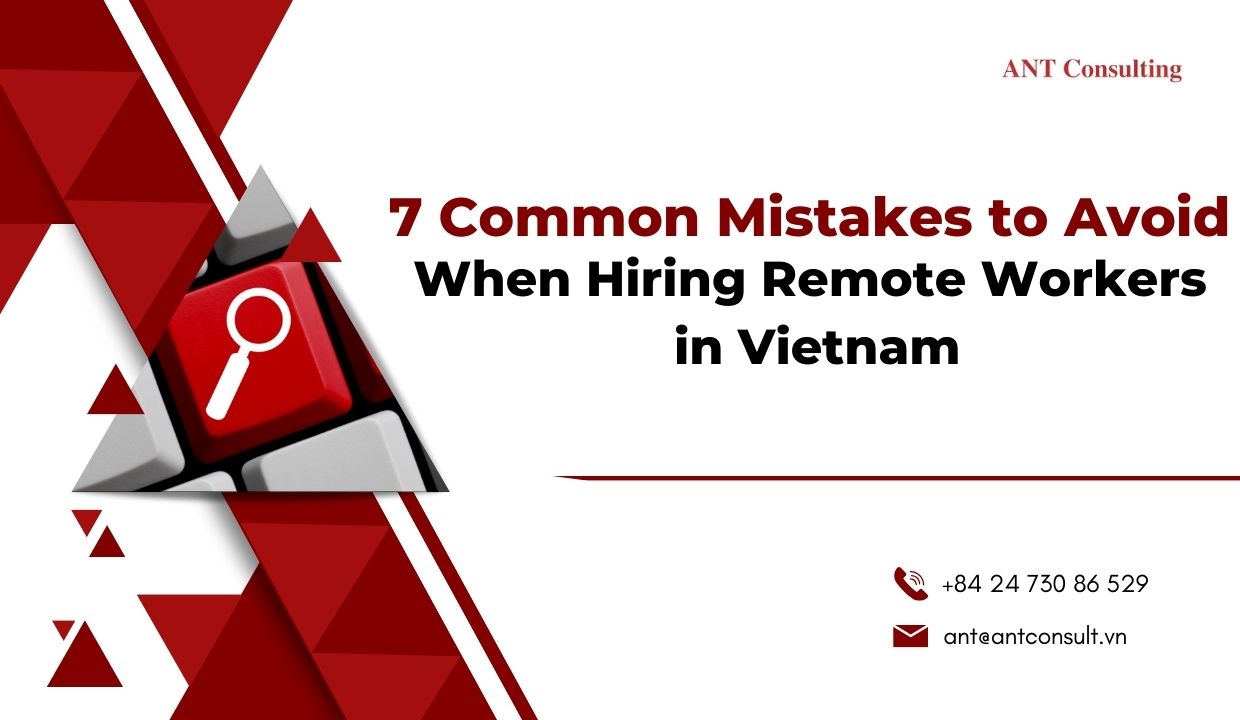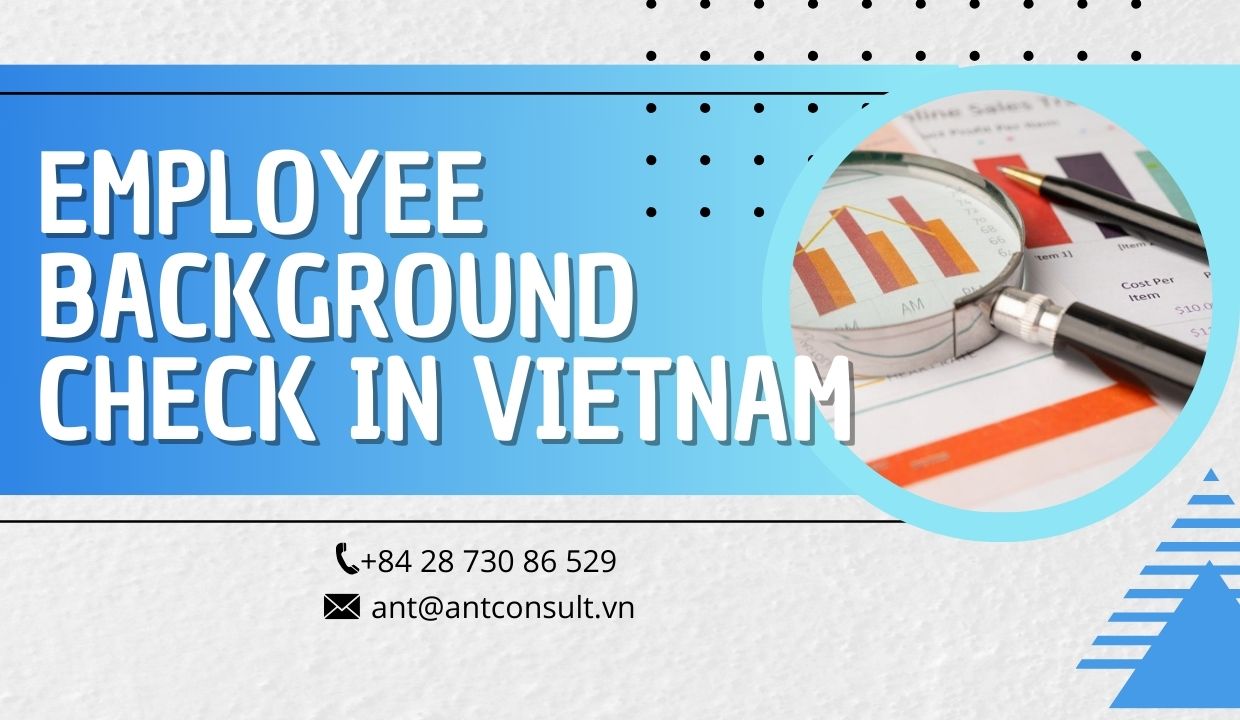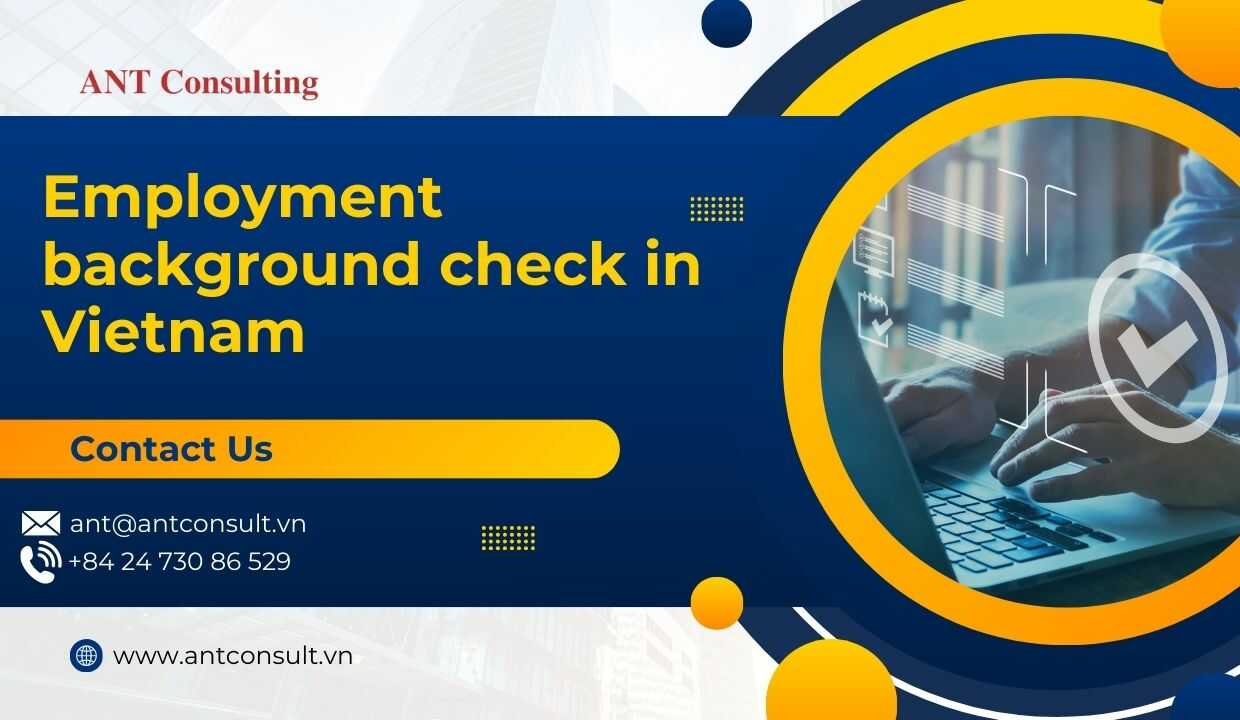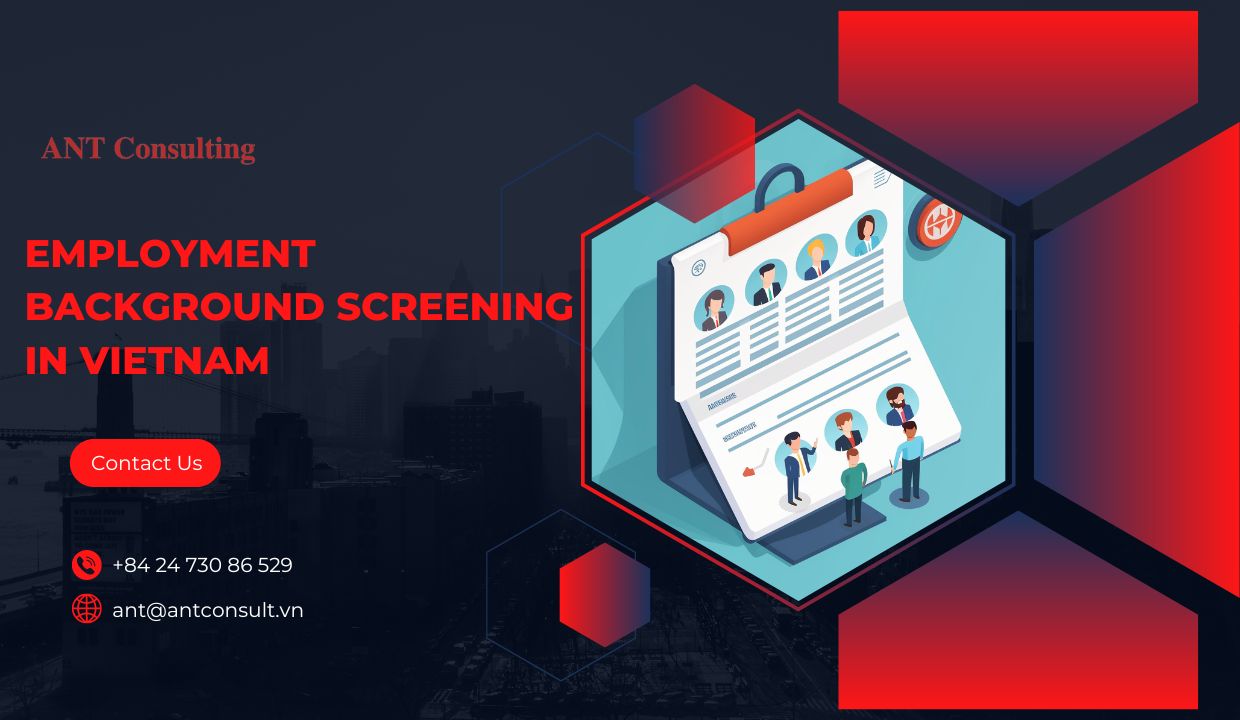Hiring remote workers in Vietnam has become a popular option for companies worldwide looking to tap into a diverse and skilled talent pool. Vietnam’s growing digital economy and its highly educated workforce make it a great destination for remote hiring. However, there are significant risks if you don’t approach the hiring process carefully.
In the following, we’ll explore seven costly mistakes that businesses often make when hiring remote workers in Vietnam and provide actionable strategies to avoid them. By the end, you’ll understand how to streamline your hiring process and ensure that your remote workforce operates smoothly and efficiently.

Underestimating the Financial Impact of a Bad Hire
Hiring the wrong remote worker in Vietnam can result in unexpected financial consequences. These include recruitment costs, onboarding expenses, and lost productivity when a hire fails to meet expectations. The cost of replacing a remote worker can be even higher due to the complexities of remote work management.
When hiring remote workers in Vietnam, it’s crucial to understand that the financial impact goes beyond the initial salary. Miscommunication, missed deadlines, and underperformance can derail projects, costing you both time and money.
How to Avoid It:
- Use a comprehensive vetting process to ensure you’re hiring candidates who not only have the skills but are also suited for remote work.
- Start with trial periods or freelance contracts before fully committing to a candidate. This allows you to assess their performance and compatibility with your company without significant financial risk.
Ignoring Red Flags During the Recruitment Process
One of the most common mistakes when hiring remote workers in Vietnam is overlooking red flags during the recruitment process. Candidates may have an impressive resume but fail to demonstrate essential remote work qualities like self-management, discipline, and strong communication skills. Red flags can include inconsistent work histories, difficulty meeting deadlines, or poor communication during the interview process.
How to Avoid It:
- Develop a structured interview process that tests for remote-specific skills. For instance, ask candidates about how they manage their time or handle communication challenges in a remote setting.
- Pay attention to responsiveness during the hiring process. If a candidate is slow to respond or unclear in their communication, it may indicate challenges in a remote work environment.
Overlooking Cultural Fit When Hiring Remote Workers in Vietnam
When hiring remote workers in Vietnam, cultural fit is just as important as technical skills. Even if a candidate is highly skilled, they may struggle to integrate into your company if their work style or values don’t align with your corporate culture. This misalignment can lead to misunderstandings, miscommunication, and, ultimately, underperformance.
How to Avoid It:
- Include questions during the interview process that assess cultural fit. Ask candidates about their preferred work environment, how they handle team collaboration, and what values they prioritize in the workplace.
- Involve current team members in the interview process to ensure that the new remote hire will be able to collaborate effectively with your existing team.
Failing to Provide a Comprehensive Onboarding Process
A strong onboarding process is essential when hiring remote workers in Vietnam. Without clear expectations, guidance, and support, even the most talented workers can struggle to perform. A well-structured onboarding program helps remote workers understand their responsibilities, the company’s expectations, and how to use the tools and platforms necessary for their role.
How to Avoid It:
- Develop a detailed onboarding plan that includes regular check-ins, training sessions, and a clear outline of the worker’s responsibilities.
- Use project management software to ensure that tasks are assigned and tracked efficiently, helping the remote worker stay aligned with the company’s goals.
Lack of Clear Expectations and Communication
When hiring remote workers in Vietnam, many companies make the mistake of not setting clear expectations upfront. Without clarity regarding deadlines, performance metrics, or communication channels, even a highly skilled worker may fall short of your expectations. Misaligned expectations can lead to frustration on both sides, resulting in lower productivity and higher turnover.
How to Avoid It:
- Clearly define the role, responsibilities, and performance metrics before the worker starts. This includes setting expectations for work hours, deadlines, and communication.
- Establish regular check-ins and feedback loops to ensure that both you and the remote worker are on the same page regarding progress and performance.
Negative Impact on Team Morale from a Poor Remote Hire
The ripple effect of a poor remote hire can extend beyond financial loss—it can also damage team morale. Remote teams rely heavily on trust, clear communication, and collaboration. When one team member fails to deliver, it can create friction, resentment, and frustration among the rest of the team, especially in a remote setting where interactions are already limited.
Hiring remote workers in Vietnam should involve careful consideration of how the new hire will integrate into the team and whether they will enhance or disrupt the team dynamic.
How to Avoid It:
- Conduct team interviews as part of the hiring process, allowing current employees to weigh in on the candidate’s fit with the team.
- Create an open line of communication within the team, so any issues that arise with new hires can be addressed quickly before they escalate.
Navigating the Legal and Logistical Challenges of Terminating a Remote Worker
One often-overlooked aspect of hiring remote workers in Vietnam is the legal and logistical challenge of letting someone go if things don’t work out. Employment laws in Vietnam may differ from those in your home country, and not fully understanding these regulations can expose your company to legal risks.
If you need to terminate a remote worker, the process can be even more complicated when they are based in another country, involving cross-border employment laws and contract enforcement challenges.
How to Avoid It:
- Before hiring remote workers in Vietnam, consult with a legal expert who understands both Vietnamese labor laws and international employment regulations.
- Structure contracts with remote workers to include clear terms about probation periods and employment termination procedures, ensuring that you can part ways smoothly if necessary.
Key Strategies for Successful Remote Hiring in Vietnam
- Use a Rigorous Vetting Process: Take your time to assess candidates thoroughly, focusing on both skills and their ability to work independently. Also undertake employee background check to verify.
- Prioritize Communication and Cultural Fit: Make sure candidates can communicate effectively in a remote setting and align with your company’s culture.
- Provide Strong Onboarding and Clear Expectations: Set remote workers up for success by giving them the tools, training, and support they need from the start.
- Create a Feedback and Support System: Regularly check in with your remote workers to ensure that they are meeting expectations and feel supported in their role.
- Consult with Legal Experts: Understand the legal requirements and protections when hiring remote workers in Vietnam, particularly if you’re entering into long-term contracts.
Hiring remote workers in Vietnam offers many advantages, from cost savings to access to a highly skilled workforce. However, if not done properly, hiring the wrong remote worker can have serious financial, legal, and emotional consequences for your business. By avoiding these common mistakes and focusing on structured, thorough hiring processes, you can ensure that your remote team thrives.
As more companies embrace remote work, Vietnam is becoming a key destination for employers seeking top talent. Ensure that when you’re hiring remote workers in Vietnam, you’re setting your business up for success by following the strategies outlined above. The right hire can elevate your business, while the wrong one can set it back—so it’s worth taking the time to get it right.
How ANT Consulting Could Help Your Business?
Please click here to learn more about ANT Consulting or contact our lawyers and consultants in Vietnam for advice via email ant@antconsult.vn or call our office at +84 28 730 86 529




